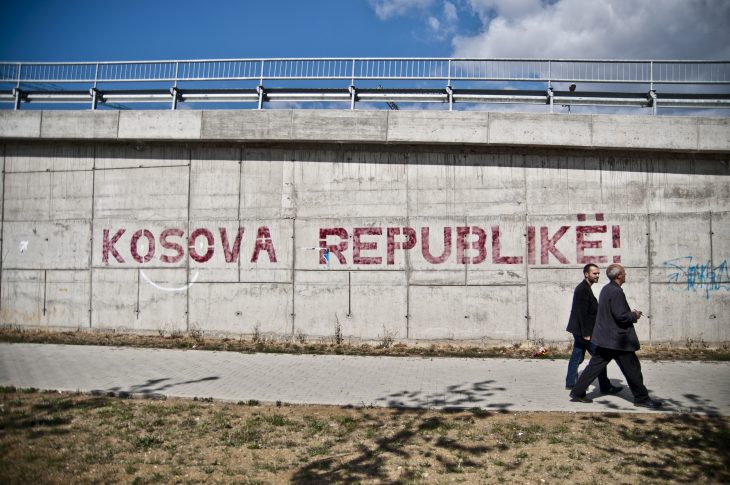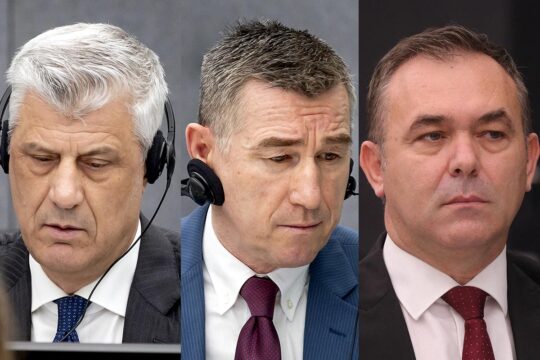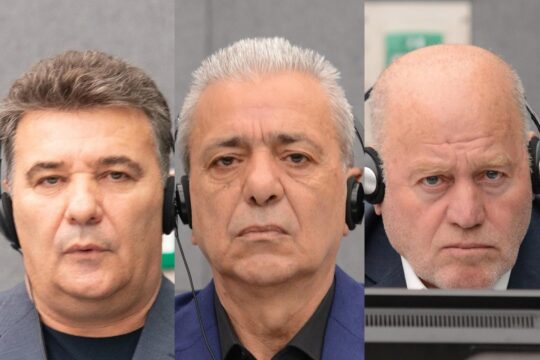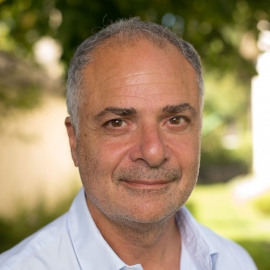War crimes, international organ trafficking, mafia networks and corruption involving top officials of a Balkan State, Kosovo: it sounds like the scenario for a John Le Carré novel. Tragically, though, it seems to be true. Eight years after the first accusations and two investigations that backed them up, justice might soon start to be served. To protect potential witnesses, the European Union is preparing to set up its first tribunal. JusticeInfo.Net has learned that all the “sensitive proceedings” will be handled outside Kosovo by international staff, to protect witnesses and stop the tribunal being infiltrated by criminal networks.
It all started in April 2008. Carla del Ponte, former Prosecutor of the International Tribunal for the former Yugoslavia (ICTY), published her book “The Hunt: Me and the War Criminals”, in which she accused members of what was then the Kosovo Liberation Army (UCK) of organ trafficking from Serb prisoners at the end of the conflict in 1999. Following her accusations, the Council of Europe mandated Dick Marty, another former prosecutor who is also from Italian-speaking Switzerland, to investigate. Although sceptical at first, he was quickly convinced that the crimes were real. His December 2010 report is damning. Citing concurring testimonies, he corroborated the accusations in Carla del Ponte’s book and even went further.
He accuses notably the head of the UCK, Hashim Thaqi, who was the regular interlocutor of US Secretary of State Madeleine Albright, of having set up with some of his close commanders a formidable network linked to organized crime in Kosovo and Albania that carried out murder, torture and extortion. Dick Marty claims Thaqi remains “untouchable” because, he says, Western governments preferred to sacrifice justice for short-term stability in the period of chaos that followed the NATO bombing campaign and the Serb withdrawal from Kosovo in 1999, even if it meant the mafia networks would continue to flourish. In 2008, when Kosovo gained independence, Hashim Thaqi became the new Prime Minister of the new State. He is currently Foreign Minister.
A Prosecutor, evidence, but no court
Dick Marty thus confirms that the organ trafficking happened. The victims were taken to Albania, killed with a bullet to the head and then immediately operated on to remove their kidneys, which were then exported from Tirana airport. American prosecutor Clint Williamson was mandated in October 2011to direct a special EU taskforce (SITF) to verify Dick Marty’s accusations. In 2014, he said he had gathered enough evidence to show that “a systematic campaign of persecution against minorities was led by the UCK as of June 1999, including extrajudicial killings, forced disappearances, inhumane treatment and sexual violence (…), which merits that their perpetrators be prosecuted for “crimes against humanity”.
Also citing organ trafficking, the American prosecutor claims that “about a dozen” people were killed in order to remove their organs and sell them. Clint Williamson concludes bitterly that “there is no precedent where an international prosecutor has been appointed and given all necessary powers to investigate and prosecute but no tribunal so far exists to try the perpetrators of these crimes”. The European Union final decided to act. For the first time in its history, it is preparing to set up a tribunal. This court will be charged with investigating war crimes and organ trafficking in Kosovo.
In Brussels, a small team is working on this prospective and very unusual institution. The tribunal, financed by the EU, is to be officially integrated into Kosovo’s judicial system. But given the risk that the tribunal might itself be infiltrated by criminal networks and that pressure might be put on witnesses, the EU and the government of Kosovo have agreed, according JusticeInfo.Net sources, that this Kosovo tribunal should be composed exclusively of non-Kosovars. The Prosecutor will be David Schwendiman of the US, who succeeded Clint Williamson to continue the investigations. The judges and staff of the tribunal will also be “exclusively international”. This was confirmed by Kosovo President Atifete Jahjaga in an April 14, 2014 letter to EU High Representative for Foreign Affairs Catherine Ashton.
“Sensitive proceedings”
In the same letter, of which we have obtained a copy, it is said that the court will sit in Kosovo, but all the “sensitive proceedings”, including the hearing of witnesses, will take place outside the country. Negotiations are currently under way between the Netherlands and Kosovo, which could lead to the Netherlands hosting the tribunal. The president of Kosovo says in the same letter that “all the sensitive documents will be placed and kept exclusively outside the country”. Never have so many precautions been taken in the creation of a semi-international tribunal. It is true that several European Union reports have denounced corruption in Kosovo and threats against those who are prepared to testify. In his report to the Council of Europe, Dick Marty denounced the “wall of silence” that has met his investigation. “Even if the conspirators are not themselves members of the same clan, their loyalty to their criminal bosses is impossible to break,” he says, “with the result that political leaders can refute the allegations concerning the implication of the UCK in the detentions, murders and tortures.”
A key witness in Kosovo who denounced top officials for war crimes was found hanged from a tree in Germany in 2011 before he could even talk to the court. In face of the risks, others prefer to “forget” what they know. Pieces of evidence gathered by the ICTY on organ trafficking have also been mysteriously destroyed...
Short-term interests over justice
For years neither the United States nor the European Union wanted to act on this case, although they both bear a big responsibility in the independence of Kosovo through the NATO intervention of 1999. Attention at the time was focussed on crimes committed by Serb forces. Hashim Thaqi and his close commanders in the UCK were seen by Western governments as necessary negotiating partners. But now the wind is changing. EU governments and Washington are now worried about the rise of organized crime in the Balkans, whose networks partly control trafficking in arms, drugs and migrants. The judicial process will, however, be slow. On August 3 this year, Kosovo’s parliament gave a green light to setting up the tribunal. The agreement now needs to be finalized between Pristina and The Hague for the Dutch capital to host this court. The tribunal should be in place by next year, but it is not likely to start working seriously until 2017, once the judges have been appointed and they and the investigators have got down to work. As for the key witnesses that Dick Marty and Clint Williamson met, will they be willing, nearly twenty years after the events and nearly ten years after Carla del Ponte’s accusations, to testify at the possible risk of their lives?







